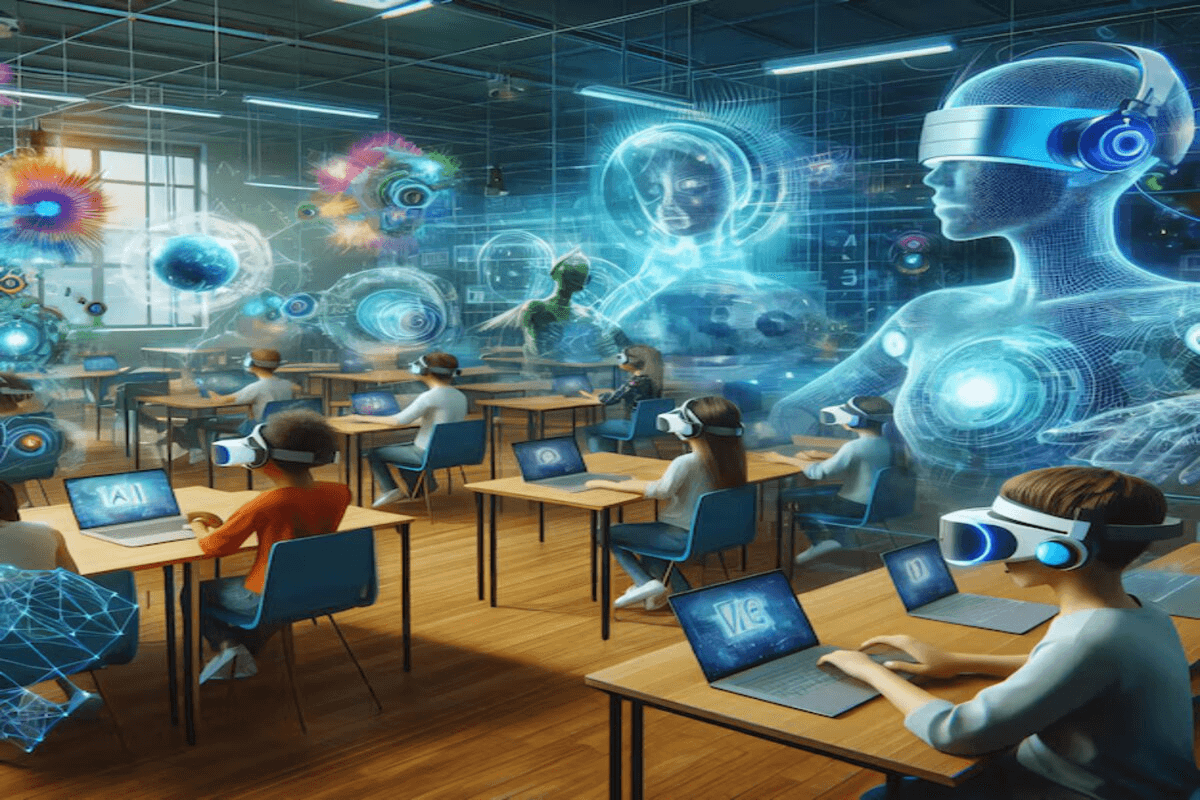AI Tutors and Virtual Mentors: The Future of Personalized Learning in Indian Schools
With the National Education Policy (NEP) revolutionizing India’s academic landscape, AI tutors and virtual mentors are emerging as game-changers. From customized lesson plans to 24/7 guidance, these technologies are redefining what learning looks like—especially in CBSE affiliated schools in India.
Let’s explore how innovative schools in India are leading this transformation and why embracing AI is crucial for students, teachers, and parents.
Why Personalized Learning Matters
Traditional classrooms often adopt a one-size-fits-all approach.
Personalized learning ensures every student learns at their own pace.
AI and virtual mentors offer tailored learning paths based on student strengths and weaknesses.
This model especially benefits slow learners or advanced students needing more challenges.
India’s top CBSE schools are already using this model to deliver measurable outcomes.
The Role of AI Tutors in Modern Classrooms
AI tutors are intelligent systems that:
Provide real-time feedback and performance analytics
Offer adaptive learning modules aligned with CBSE schools in India
Track student progress continuously
Recommend resources to bridge learning gaps
These systems empower both teachers and students, making classroom time more effective.
Virtual Mentors: A 24/7 Learning Companion
Unlike traditional tutoring:
Virtual mentors are available any time, anywhere
They foster self-paced, independent learning
Students receive regular insights, reminders, and practice suggestions
Virtual mentors complement school education with personalized support
Top 5 schools in India CBSE have begun to integrate virtual mentorship into their learning platforms, offering students a competitive edge.
Innovation in Education in India: What's Changing?
Here’s how innovation in education in India is shaping schools:
Smart classrooms integrated with AI tools
Digital dashboards for parent-teacher-student communication
Use of machine learning to predict academic outcomes
Blended learning methods (online + offline)
This isn’t just limited to metros. Many innovative schools in India across Tier 2 and Tier 3 cities are adopting these trends to stay ahead.
NEP's Impact on Education
The NEP’s impact on education is significantly pushing for:
Emphasis on experiential learning and critical thinking
Integration of technology in curriculum delivery
Continuous professional development for teachers
Development of foundational skills through adaptive learning platforms
With AI integration, CBSE affiliated schools in India are now better equipped to meet NEP’s goals.
How CBSE Schools Are Leading the AI Revolution
Many CBSE schools in India have started to:
Use AI for customized assessments and lesson planning
Conduct virtual PTMs with AI-generated reports
Provide AI-curated study materials based on past performances
Introduce coding, robotics, and AI labs from an early age
These initiatives demonstrate how India’s top CBSE schools are setting benchmarks in EdTech adoption.
Benefits of AI Tutors and Virtual Mentors
Enhanced Engagement: Interactive interfaces make learning enjoyable
Better Performance: AI pinpoints areas for improvement quickly
Parental Involvement: Parents can track real-time progress via apps
Teacher Support: Automates administrative tasks, allowing teachers to focus on teaching
These benefits are why innovative schools in India are actively investing in these tools.
Challenges to Address
Despite the growth, a few challenges remain:
Digital divide between urban and rural students
Need for training teachers to work with AI tools
Privacy and data security concerns
Resistance to change in traditional academic institutions
Addressing these is crucial to maximize the NEP's impact on education.
Looking Ahead: The Future of Personalized Learning
AI won’t replace teachers—it will empower them
Students will become more independent, critical thinkers
Learning will move beyond exams to skill development
Schools will become holistic learning ecosystems
If you're looking at the top 5 schools in India CBSE, chances are they’re already pioneering these innovations.
FAQs
1. Are AI tutors replacing traditional teachers in India?
No, they complement teachers by handling repetitive tasks and offering personalized feedback.
2. How do AI mentors help in CBSE affiliated schools in India?
They align with the CBSE curriculum to provide targeted learning plans and performance tracking.
3. Is personalized learning only for academically weak students?
Not at all. It benefits all students by catering to individual learning speeds and styles.
4. Are these technologies available in all CBSE schools in India?
Currently, they’re more common in innovative schools in India, but adoption is spreading rapidly.
5. How is NEP influencing AI adoption in education?
NEP’s impact on education includes a strong push for digital literacy and technology integration in schools.
Conclusion
The rise of AI tutors and virtual mentors marks a bold leap in innovation in education in India. As India’s top CBSE schools embrace these technologies, personalized learning is no longer a luxury—it’s the new norm.
Whether you’re a parent, student, or educator, understanding this shift is crucial to staying ahead in the evolving educational landscape.

